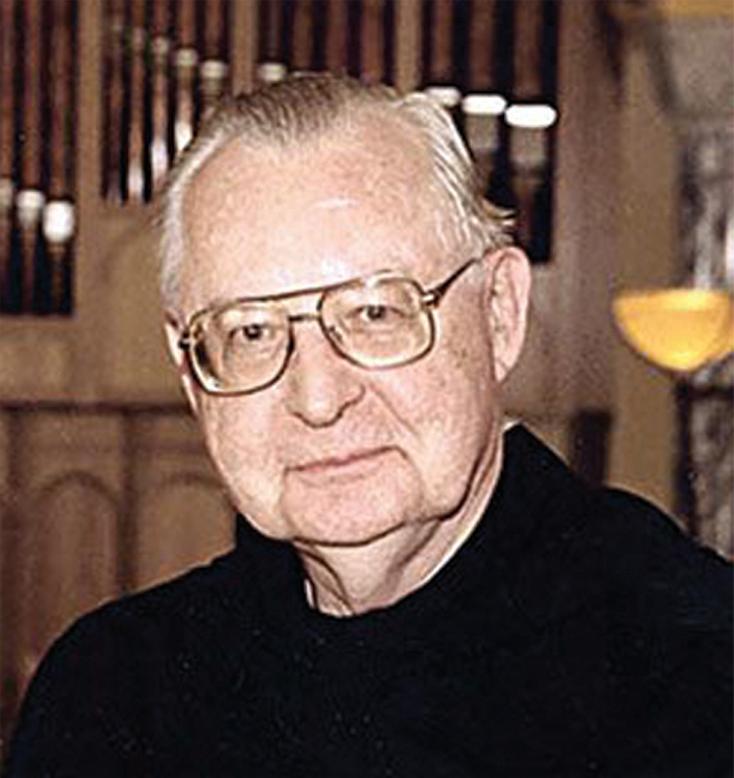Dr. Alexander Peloquin (1918-1997)
Lent is behind us. Triduum is over. Our Easter Sunday liturgies are complete. Alleluia, indeed! Today, we’ll hear a lively presentation from the late Dr. Alexander Peloquin. Recorded at the first NPM national convention in 1978, Dr. Peloquin shares a lively history of music in the liturgy. For the next hour, he will explore the evolution of liturgical music. From the earliest chants to the great sequences and hymns of the Reformation and Counter Reformation, right through to the early years of post Vatican II music, you’ll hear examples of how music in the Church has been influenced – and has influenced in turn – the development of western music. Dr. Peloquin combines music theory, liturgical history, pastoral commentary, and a good deal of humor.
Before we get to the recording, two quick notes.
First, a word about today’s presenter. Dr. Alexander Peloquin was a liturgical composer, organist, teacher, and director of music. Throughout his extensive career, he worked with Leonard Bernstein, Aaron Copland, Dave Brubeck, and Thomas Merton. A strong proponent of the reforms established by the Second Vatican Council, in 1964, Dr. Peloquin composed the first Mass sung in English. Dr. Peloquin died in 1997. You can read more about his life and works in the show notes for this episode on our website, ministrymonday.org.
Second, this presentation was digitized from an archival tape recording. As you can expect from a forty-year old tape, there are a few sound issues here and there. Still, we hope that you enjoy this gem from our archives. We’ll be back with new interviews and conversations next week.
SHOW NOTES
To join us this summer at the national convention in Baltimore, Maryland, visit the 2018 NPM convention website.
You can read more about Dr. Alexander Peloquin on his composer page from GIA Publications. You can also read an article about his life on the Boston College website.
The recording of "Resucito" was produced by OCP.
Visit NPM's digital resource library, referenced at the end of the episode.
All content of this podcast is property of the National Association of Pastoral Musicians or its content suppliers and is protected by United States and international copyright laws. For information about the podcast and its use, please contact us.




